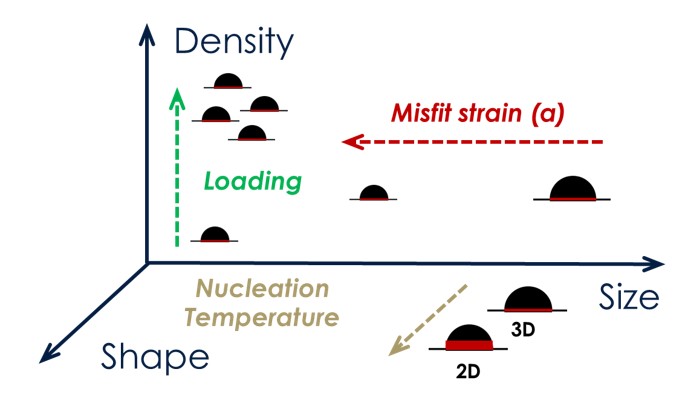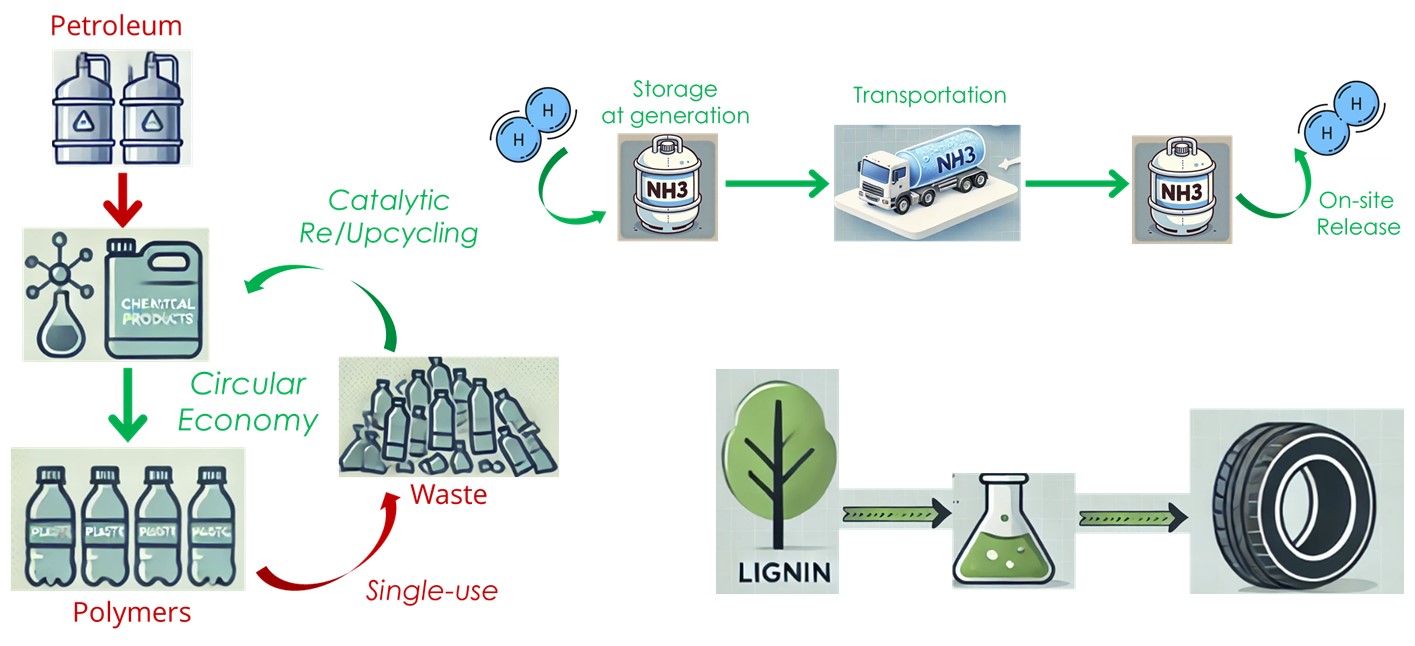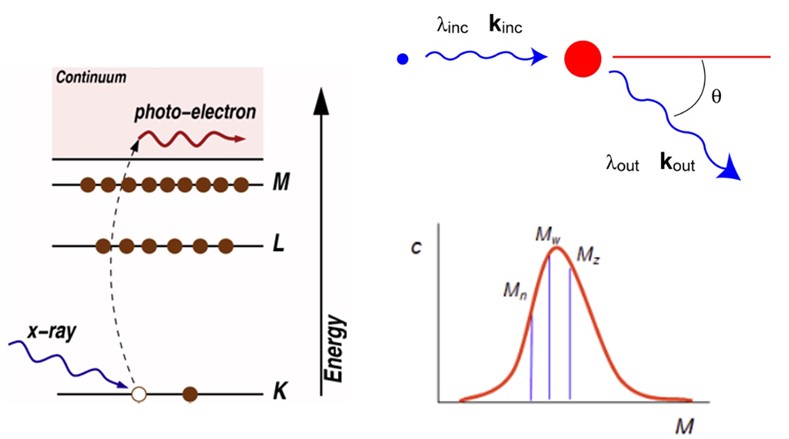

As a group of chemist-engineer hybrid, our research aims to bridge practical heterogeneous catalysis and fundamental surface chemistry, by studying the three pillars of catalysis science: catalytic materials, spectroscopic characterization, and reaction kinetics. Research activities in the group fall under three inter-connected general themes below. Most projects are interdisciplinary and collaborative, involving multiple themes to varying degrees.
Understanding fundamental principes governing heterogeneous catalysis (MAKING SENSE of practical chemical processes)
Heterogeneous catalysis occurs on surfaces with complex structures and under harsh reaction conditions. Compared to homogeneous catalysi, this brings additional challenges to the fundamental understanding of active sites and reaction mechanisms. We use a wide array of modern in-situ spectroscopy techniques to probe the atomic-level structure of working active sites, and use such knowledge to explain reaction mechanisms indicated by kinetic analysis. We act as “detectives”, to solve puzzles, sometimes unexpected, behind the behaviors of molecules and catalyst surfaces during catalysis. While doing so, we often borrow knowledge of model catalysts under clean conditions acquired from surface science and/or theoretical studies, which are more precise but less relevant to applications.


Mechanism-informed catalyst design for sustainability (MAKING USE of fundamental knowledge)
Modern chemical industry is evolving towards sustainable solutions involving renewable feedstocks, lower energy/carbon footprints, and less environmental impacts. Enabling new chemical routes and/or improving existing ones often require developing new catalysts. Rather than a “pasta-on-the-wall” or “trial-and-error” approach, we emphasize rationally designing catalyst structures based on how reaction occurs on it, learned by us or others. We sometimes think out of the box and seek inspirations from surface science, organometallic chemistry, and other scientific fields adjacent to (or not) heterogeneous catalysis. We are interested in a broad range of reactions related to sustainability, such as polymer recycling, hydrogen storage/release, biomass conversion, and carbon circularity.
Method development for catalyst synthesis and characterization (expanding the toolbox)
To understand active-site structures and make new ones in a targeted manner, catalysis chemists need a versatile toolbox for atomic-level characterization and precise synthesis of catalysts. Therefore, we constantly look for new ways, often in collaboration with physicists and/or materials scientists, to develop new spectroscopic/synthetic methods to understand/make heterogeneous catalysts. With our broad ties to the national laboratories, this line of work often involves unique “fancy toys” there, such as synchrotron and neutron facilities. We emphasize “in-situ”/"operando" approaches that acquire structures under catalytically relevant conditions. These efforts are sometimes “organic” (we need a new method to solve a problem), and sometimes intentional (we learn about a new capability that we want to explore).

